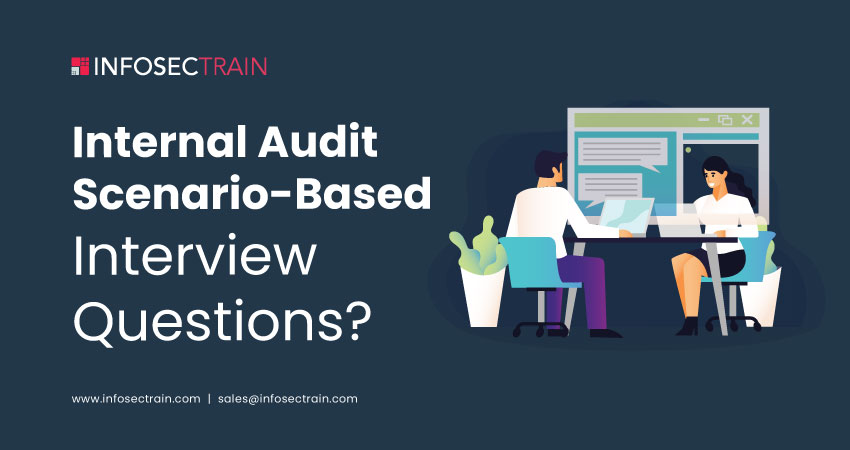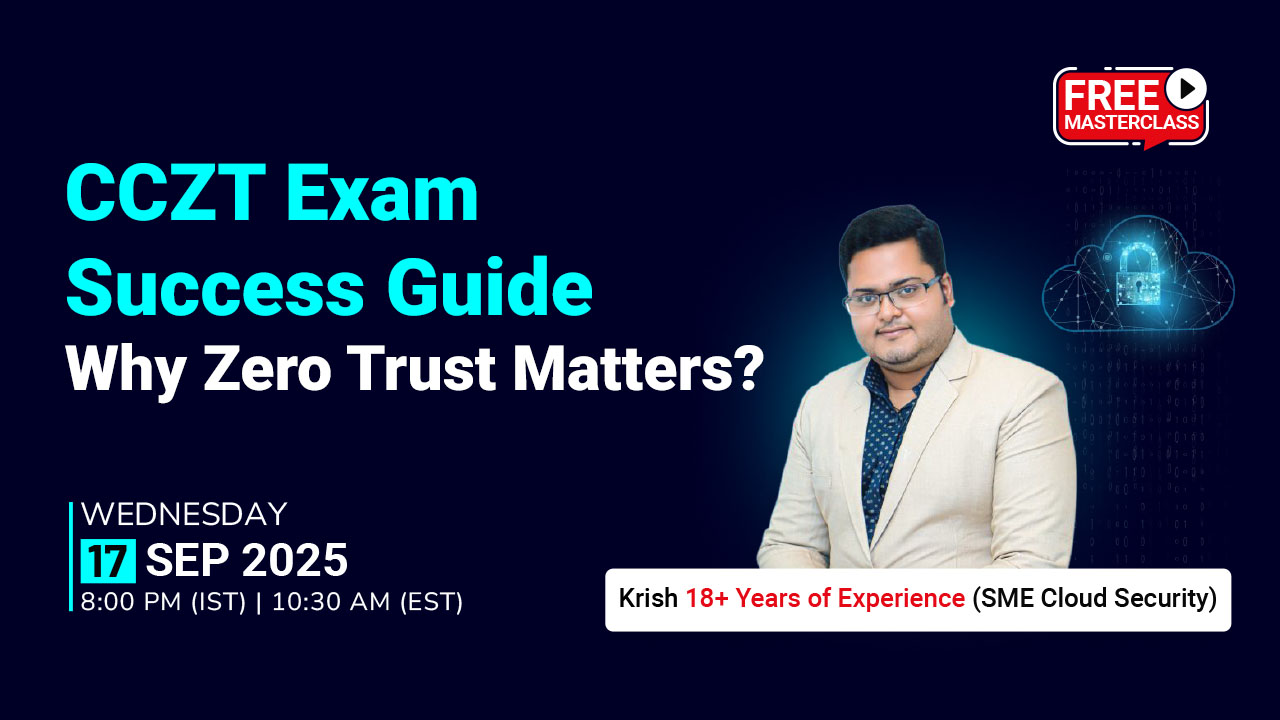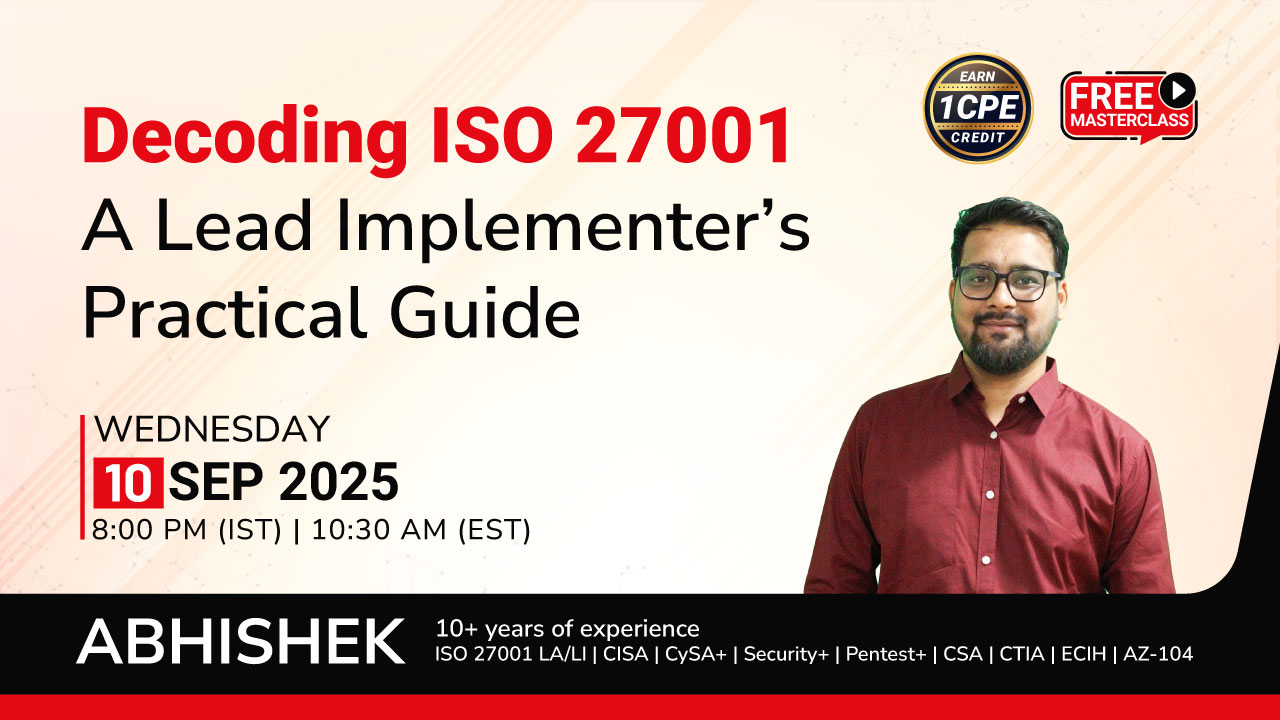Internal Audit Scenario-Based Interview Questions
When working in internal auditing, navigating complicated situations and making informed decisions is crucial. Scenario-based interviews are essential for hiring and assessing candidates for internal audit roles. Unlike the usual question-and-answer format, scenario-based interviews delve into real-life situations that auditors might face in their roles.

These interview questions are crucial for candidates to demonstrate their problem-solving capabilities, ethical judgment, and practical application of auditing standards, which are essential for success in the profession. They provide a deeper insight into a candidate’s preparedness to tackle the complexities of the role beyond typical interview questions.
This blog post offers individuals a comprehensive list of interview questions tailored explicitly for internal audit scenario-based discussions.
Internal Audit Interview Questions with Scenarios
1. Could you describe your audit report writing process to us, particularly how you ensure clarity and detail in presenting your findings?
Here is a step-by-step process that I follow when drafting an audit report:
- Categorize findings based on the impact on the organization’s operations, compliance, and financial integrity.
- Use clear, non-technical language for broader understanding.
- Structure the report logically: an executive summary, introduction, body, and conclusion.
- Provide clear objectives, scope, and methodology in the introduction.
- Detailed findings with subheadings and bullet points needed for clarity.
- Pair findings to business impacts and provide tailored recommendations.
- Include visual representations like charts or tables for complex data.
- Summarize critical recommendations and a call to action.
- Finally, I share drafts with relevant stakeholders for input to refine the report.
2. Explain the process you use to prepare and present audit findings to stakeholders. How do you tailor your presentation based on the audience?
When preparing and presenting audit results to a diverse group of stakeholders, my approach is:
- Understand stakeholders’ roles and expertise.
- Prioritize findings relevant to stakeholders’ interests and concerns.
- For technical stakeholders:
- Include detailed analyses and technical references
- Present data-driven insights
- For non-technical stakeholders:
- Highlight the broader implications of the findings
- Offer clear, actionable recommendations
- Use straightforward, simple language
- Utilize visual presentations like charts, graphs, and infographics for clear understanding.
- Encourage questions and feedback during the presentation for clarity and engagement.
3. Give an example of a challenging bank audit you have managed. What made it difficult, and how did you overcome these challenges?
A complex bank audit I managed involved assessing the risk management practices of a bank with a diverse portfolio of financial products, particularly advanced derivatives and structured debt instruments. The audit was challenging because of the lack of transparent reporting practices and the complex nature of the financial products. To address these challenges, I conducted detailed interviews with the bank’s financial department to understand their risk management practices better. I also conducted thorough analyses of transaction records and applied financial analysis tools to evaluate risk and compliance levels. This detailed approach helped me identify critical risk management issues that the bank was able to address.
4. How do you plan the execution of an audit to align with the scope agreed upon with the client?
In preparing for an audit execution, I begin with the following steps:
- Thoroughly understand the client’s operational workflows, areas of potential risk, and specific concerns.
- Examine past audit outcomes and findings from regulatory bodies.
- Engage in discussions with key stakeholders.
- Develop a detailed audit plan outlining objectives, defined scope, timeline, and required resources.
- Ensure the plan is adaptable to unexpected issues.
- Maintain strict alignment with the agreed scope with the client.
5. Describe the detailed walkthroughs you do to understand customer controls and processes.
To conduct detailed walkthroughs of a client’s business processes and controls, I follow these steps:
- Begin with an in-depth review of the client’s process documents for initial understanding.
- Meetings with stakeholders and process owners to better understand the practical implications and challenges of the processes.
- Observe the processes in action to identify discrepancies.
- Ask targeted questions to clarify each process step and control.
- Identify any process inefficiencies or control weaknesses.
- Summarize findings and recommendations for improvements.
6. Discuss your approach to documenting work performed and maintaining work papers.
I approach these steps to manage this crucial aspect:
- Ensure all audit activities are thoroughly documented for clarity and completeness.
- Utilize audit software to organize and manage efficiently, index, and cite work papers by the audit program.
- Each paper clearly outlines the work performed, findings, and evidence, ensuring a transparent audit trail.
- Adhere to the firm’s work paper retention policies that ensure documents are kept securely for the required period.
- Finally, all documents are reviewed and signed off by a supervisor for quality assurance.
7. How can you make sure that you meet all the necessary rules and regulations during audits?
To ensure compliance with current regulatory and statutory requirements during audits, I:
- Keep updated on changes or updates in regulations by engaging in continuing education opportunities, such as professional development courses and industry publications.
- Use an updated checklist that aligns with the latest regulations and standards applicable to the client’s specific industry and jurisdiction.
- Seek advice from legal or regulatory specialists for complex compliance issues.
8. Could you provide an example of how you have determined what needs to be improved and recommended changes to customers?
In one audit, I identified inefficiencies in a client’s inventory management process through detailed analysis and observation, leading to frequent stockouts and overstocking. I recommended implementing a real-time inventory tracking system tailored to their operations to optimize stock levels and reduce holding costs. I highlighted the benefits, including cost savings and improved customer satisfaction, emphasizing the importance of these improvements. The client acknowledged the value of my recommendations, prompting a swift implementation plan.
9. Can you share your experience and understanding of banks’ different banking products, like Fixed Income, Money Market, Forex, Derivatives, and Bullion?
My experience auditing banks with varied portfolios, including Fixed Income, Money Market, Forex, Derivatives, and Bullion, has equipped me with a comprehensive understanding of various banking products. I focus on thoroughly understanding each product’s market dynamics, the risks involved, and the standard controls to mitigate those risks. For example, in auditing Money Markets, I have examined short-term financing mechanisms and assessed risk management practices, including interest rate and counterparty risk controls. My continuous learning approach and hands-on audit experience have enhanced my banking product expertise.
10. How would you evaluate and test the effectiveness of the department’s internal controls?
To evaluate and test the effectiveness of internal controls within a department, I would take a systematic approach that involves:
- Review departmental policies, procedures, and operations to understand the control environment.
- Identify critical controls designed to mitigate identified risks, focusing on both preventive and detective measures.
- Prioritize controls based on the risks they mitigate, ensuring resources are allocated to the most crucial areas.
- Test Controls:
- Check if controls are properly designed to address specific risks.
- Evaluate the actual application of controls through observation, documentation inspection, and re-performance of control activities.
- Record testing procedures, controls tested, and outcomes, highlighting deficiencies and their impacts.
- Summarize findings and suggest improvements for strengthening internal controls.
- Ensure recommended changes are implemented effectively to address any weaknesses.
For more Internal Audit Interview Questions, you can explore Prabh Nair’s Internal Audit Playlist.
Become a Certified Information Systems Auditor with InfosecTrain
Enrolling in InfosecTrain‘s Certified Information Systems Auditor (CISA) and ISO/IEC 27001:2022 Lead Auditor training and certification course is a strategic move for those who want to specialize in information systems auditing. These courses significantly enhance an individual’s expertise in auditing, control, and security of information systems. Our seasoned professionals deliver the training with years of experience in information systems auditing. This ensures that participants learn from experts who can provide real-world insights and practical knowledge.
TRAINING CALENDAR of Upcoming Batches For CISA
| Start Date | End Date | Start - End Time | Batch Type | Training Mode | Batch Status | |
|---|---|---|---|---|---|---|
| 26-Jul-2025 | 24-Aug-2025 | 19:00 - 23:00 IST | Weekend | Online | [ Open ] | |
| 09-Aug-2025 | 14-Sep-2025 | 09:00 - 13:00 IST | Weekend | Online | [ Close ] | |
| 24-Aug-2025 | 27-Sep-2025 | 09:30 - 13:30 IST | Weekend | Online | [ Open ] | |
| 27-Sep-2025 | 09-Nov-2025 | 20:00 - 23:00 IST | Weekend | Online | [ Open ] |







 1800-843-7890 (India)
1800-843-7890 (India)